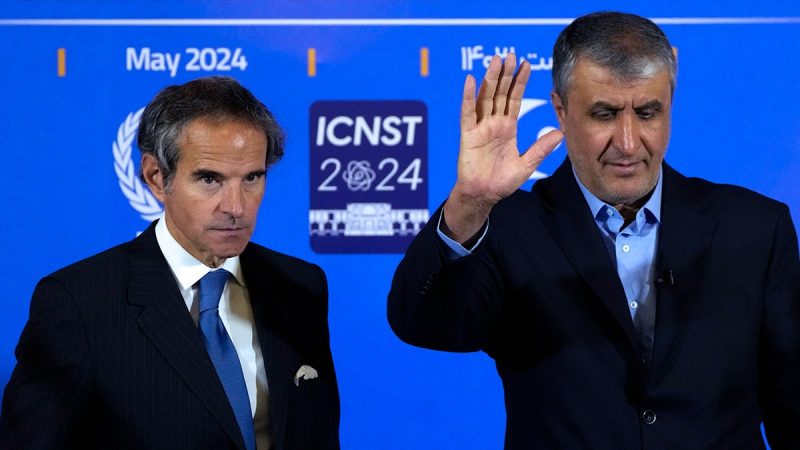Iran’s recent decision to increase uranium enrichment levels to near weapons-grade has ignited global concern and drawn urgent attention from the international community. The move is seen as a bold step by Iran to ramp up its nuclear program, raising fears of a potential arms race in the already volatile Middle East region.
The decision to enrich uranium to 60% marks a significant escalation from the 20% level that Iran had previously committed to under the 2015 nuclear agreement. This move brings Iran closer to the threshold required for the production of nuclear weapons, a development that has sent shockwaves through diplomatic circles and laid bare the fragility of efforts to curb nuclear proliferation.
The International Atomic Energy Agency (IAEA) has confirmed Iran’s latest actions, signaling a clear breach of the Joint Comprehensive Plan of Action (JCPOA) that was established to regulate Iran’s nuclear activities. The move has prompted urgent meetings among world leaders and calls for swift action to address Iran’s provocative stance.
Iran’s justification for its actions lies in its claim of pursuing technological advancements for peaceful purposes, including medical research and energy production. However, the sharp increase in uranium enrichment levels has raised skepticism about Iran’s true intentions and capability to develop nuclear weapons in the near future.
The prospect of Iran obtaining nuclear weapons has significant implications not only for regional stability but also for global security. It could trigger a nuclear arms race in the Middle East, with potential ripple effects on already strained geopolitics. The situation calls for a unified and decisive response from the international community to prevent further escalation and uphold the non-proliferation norms that underpin global security.
Efforts to address Iran’s nuclear ambitions are further complicated by the broader context of geopolitical tensions and conflicting interests in the region. The delicate balance of power, the complex web of alliances, and the presence of non-state actors add layers of complexity to the challenge of managing Iran’s nuclear aspirations.
The United Nations Security Council, along with key stakeholders such as the United States, European Union, Russia, and China, are under pressure to formulate a coordinated response to Iran’s latest provocations. The imperative is to find a diplomatic solution that addresses Iran’s concerns while ensuring robust oversight to prevent the weaponization of its nuclear program.
Sanctions are widely seen as a key tool to influence Iran’s behavior and compel it to adhere to international obligations. The lifting of sanctions was a central tenet of the JCPOA, but Iran’s latest actions have reignited the debate on the effectiveness of sanctions as a deterrent against nuclear proliferation.
As the situation unfolds, the world watches with bated breath, hoping for a peaceful resolution to the escalating tensions surrounding Iran’s nuclear program. The stakes are high, and the need for diplomatic dialogue and engagement has never been more urgent. The road ahead is fraught with challenges, but concerted international cooperation and unwavering commitment to non-proliferation principles offer a glimmer of hope in averting a potentially catastrophic scenario.

